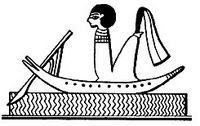Spirituality & Practice chooses Thomas Moore's
A Religion of One's Own: A Guide to Creating a Personal Spirituality in a Secular World as the
Best Spiritual Books of 2014 (So Far) in the category Devotion. It's at the top of the list, described as "a sumptuous work of creativity and insight for our times when many people want to craft a personal religion."
Frederic and Mary Ann Brussat, S&P's co-directors write about the selected books, "These are titles that have most impressed and inspired us. Since we only review books that we want to recommend to you for your spiritual journey, this selection actually represents the best of the best."
S&P's
review of
A Religion of One's Own includes, "As a student of the many quests for meaning, both sacred and secular, Moore is an advocate of mysticism and in a fine and flowing section of the book pays tribute to Christian mystic Simone Weil, Zen master Shunryu Suzuki, pianist Glenn Gould, religion historian Karen Armstrong, astronaut Edgar Mitchell, religion scholar Karoly Kerenyi, artist Georgia O'Keeffe, Trappist monk Thomas Merton, theologian Pierre Teilhard de Chardin, and psychologist James Hillman. This idiosyncratic group illustrates the mix of perspectives that can be gathered together as each of us does the exciting work of curating readings, spiritual teachers, and resources for our day-to-day living."
















